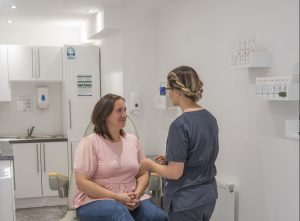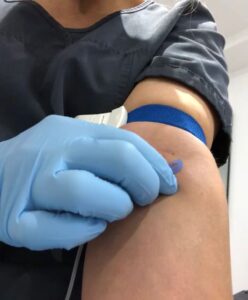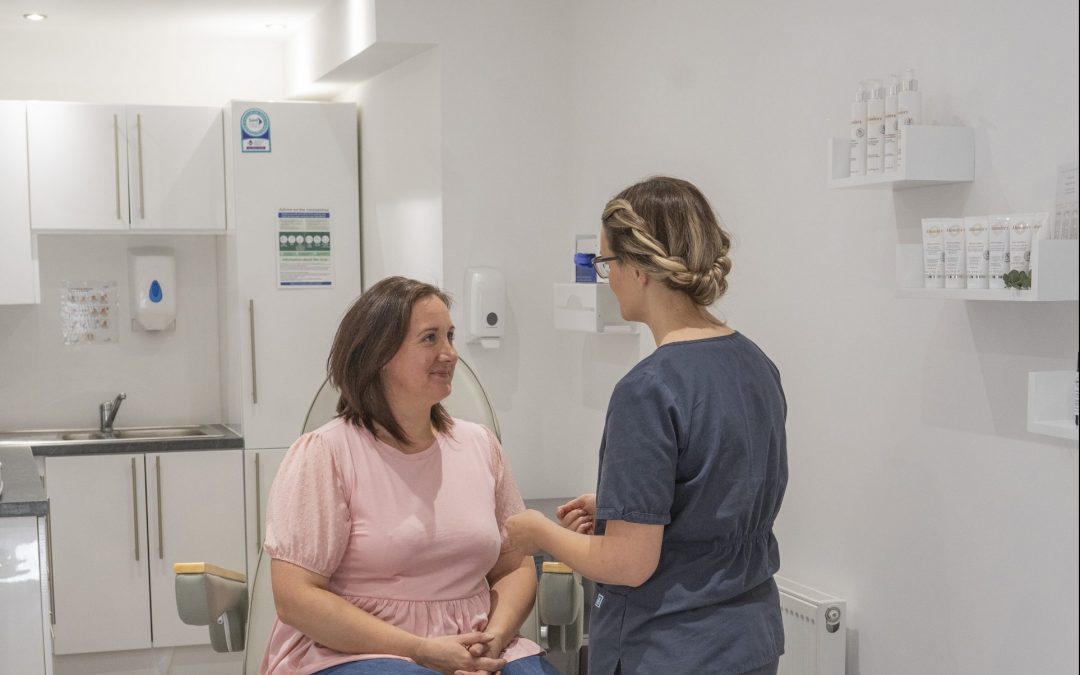
What is phlebotomy, and how do we use it in the clinic? Quite simply, phlebotomy is blood sampling: the process of drawing blood from a patient for diagnostic or therapeutic purposes and can be used in a health and wellbeing setting in several ways. Here at AL Medical Aesthetics and Wellness, as with everything we do, safety and professionalism are right at the very heart. Phlebotomy should always be performed by a trained professional to minimize the risk of infection or injury to the patient. It goes without saying that that’s the case at AL.
We offer our set panels, but we are also able to offer individual blood tests too, specific to diagnostics and screening requirements, and we take referrals from other clinicians such as nutritionists, functional medicine doctors, private paediatricians, or clinics. Our phlebotomy services include:
- Menopause Clinic
- Nutritionist
- Paediatric Bloods
- Adult Immunology
- Travel Vaccination Blood Tests
- Vitamin Assessment

Thorough Consultation is Key – Always
Preparing for Your Blood Sample
Depending on the specific test and testing parameters, we’ll clarify if there are any specific guidelines you need to follow before your test. This could be to fast from the evening prior, to avoid medication, or simply to drink plenty of water to ensure you’re not dehydrated. Dehydration can make it a little more difficult to locate the vein for a sample. If you’re given certain instructions, it’s vital to follow them.
It’s important to follow the instructions you’re given, as the test results may be dependent on certain criteria.
What Happens During a Blood Test?
In most cases, a blood sample is taken from a vein in the inner arm, usually inside the elbow. The reasons for this are primarily ease and convenience – it’s an easy spot to access or uncover, and the veins are usually near the surface. For children’s blood samples, the back of the hand is often used, and the patient’s skin can be numbed with a topical anaesthetic. As a trained and highly experienced paediatric nurse, Amy can comfort and reassure worried, young patients and take blood with minimal fuss.

To take blood, a tourniquet is placed around the arm, above the elbow. This constricts the arm to reduce the blood flow, which makes it easier for blood to be taken. The area of skin to be used will be cleaned before a small needle attached to a syringe is gently inserted into the vein and used to draw out a blood sample. You may feel a slight scratch, but no real pain or discomfort. Usually, the idea of giving blood is far worse than the reality, but if you’re really not keen on blood, or needles, just let us know – and don’t worry – we’re used to it. Afterwards, we’ll apply a little pressure to the skin with sterile cotton wool and if needed, pop a plaster on.
What happens After a Blood Test?
Very little blood is taken during the test, so there are rarely any after-effects. If you’ve ever experienced dizziness or fainting during a blood test, again, just do let us know and we can deal with it if it happens again. There may be a minor bruise at the needle site, which, even if a little sore, is usually mild and will disappear over a few days.
Once the sample has been taken, it’ll be carefully and accurately labelled with all the patient’s details before going to a laboratory for microscopic examination or chemical testing – that’s according to what tests or checks are required. Results should be back quickly, avoiding the need for stressful and anxious waits. Nonetheless, this can be a worrying time – however, we’ll do everything possible to reassure you and keep you informed. We also advise fully on, or recommend, any required treatments or pathways and all results are always shared with the requesting clinician.
Our Set Blood Sampling Panels:
- Baseline Health Screen: Blood taken for a baseline health screen is tested and analysed to review 34 individual parameters. This looks at blood counts, kidney function, liver function, electrolytes, total cholesterol, triglycerides, HDL, LDL, and thyroid function values.
- Tired All the Time: this panel reviews 49 individual parameters to examine possible causes of debilitating fatigue. Tiredness and lack of energy can be a symptom of several deficiencies or conditions, and this specialised test can help to pinpoint, or rule out, certain problems.
- Male and Female Hormone Health: Reviewing 8 parameters, these tests may be helpful for those trying to conceive or approaching menopause.
- Nutrition and Digestion tests review 25 parameters and can help identify certain food or substance triggers or intolerances, thus helping towards a diagnosis.
- Vitamins and Minerals
- Long Covid
- Hair Loss
- We will soon offer new allergy testing services testing for up to 300 potential allergens, including profiles based on geography, food types, inhalants, antibiotics, eczema, gluten and rhinitis.
Really, that’s just a snapshot of what our phlebotomy services can help with. The testing of blood really is an incredible diagnostic tool. After all, the blood travels the entire road map of the body, and much can be gleaned from looking closely at it. If you have any questions at all, get in touch; we’ll always be happy to help and to guide you. You’re assured of our professional, qualified care – always.

We’re Here to Take Care of You
Contact us now to find out how we can help.


Recent Comments